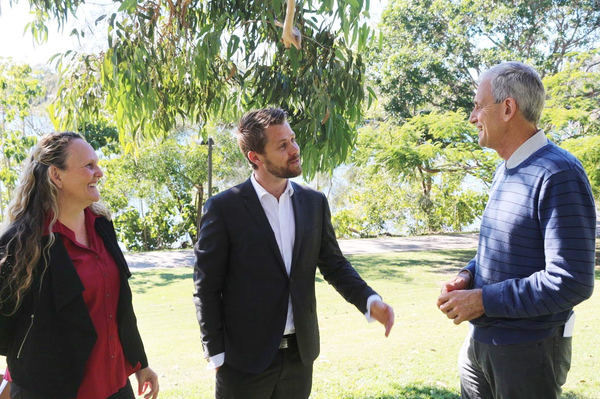By Margaret Maccoll
Johns Landing Camping Ground is gradually emptying its long-term residents, as Noosa Council Community Services director Alan ‘Fox’ Rogers last week announced it would take over ownership of the 49-hectare property at the end of October.
Council, government agencies and government-funded organisations have been working to find accommodation for residents, with priority given to families with children.
The Salvation Army’s Accommodation and Housing Services regional manager Sally-Anne Clark said they expected to this week to have accommodated 21 of the 29 children and their families who had been living at the camping ground.
The children, aged from infants to teenagers, and 20-30 adults have been found housing in a variety of areas including Mt Coolum, Gympie, Tewantin, Rockhampton and Townsville, and there were 20-30 adults still at the campsite.
Anglican Church of Noosa Reverend Ian Dredge said the church had put on a fortnightly barbecue at the campground for some time to provide a good meal, offer support and build relationships.
Ian said some people viewed the move as a chance at a fresh start.
“There’s some wonderful, resilient, capable people there who are up to the challenge,” he said.
As people move away and the cleaning up progresses, property owner Ben Johns is growing in optimism about the shift though he still has concerns about some residents.
“It’s not so daunting now as it was in the beginning, the plan seems to be working,” he said.
“No one ever thought it would happen. I’ve been here for a lifetime. It is my life. I thought I’d just die here, but I’m getting used to the idea,” he said.
“I know there’s quite a few people say they won’t go until they have to. I don’t worry about them. They know what they’re doing.
“We’ve still got a few who have problems. This was somewhere for them to live without worrying too much, but it’ll all worked itself out in the end.”
Ben praised council and the other organisations for their help in finding housing and cleaning up. Alan said about 20 large skip bins had been used so far. He said the land would be retained for its environmental value and degraded areas may be revegetated.








